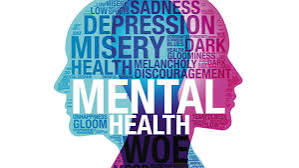Mental health refers to the well-being and functioning of our minds, emotions, and behaviors. It encompasses various aspects, including emotional well-being, psychological well-being, and social well-being.
Types of Mental Health
- Emotional Mental Health: related to emotions, mood, and relationships
- Psychological Mental Health: related to thought processes, cognition, and behavior
- Social Mental Health: related to social connections, relationships, and interactions

How to Maintain Good Mental Health
1. Practice Self-Care: engage in activities that bring joy and relaxation
2. Stay Connected: build and maintain strong relationships
3. Stay Active: regular exercise improves mood and reduces stress
4. Get Enough Sleep: aim for 7-8 hours of sleep per night
5. Eat a Healthy Diet: focus on whole, nutritious foods
6. Practice Mindfulness: be present and fully engaged in the current moment
7. Seek Professional Help: if needed, consult with a mental health professional
8. Stay Positive: focus on the good things in life and practice gratitude
9. Take Breaks: allow time for rest and relaxation
10. Stay Organized: manage time and tasks effectively

Factors Affecting Mental Health
Here are some factors that can affect mental health:
- Genetics: Family history and inherited traits
2. Environmental factors: Trauma, stress, and significant life changes
3. Social factors: Relationships, social support, and social media
4. Physical factors: Chronic illness, pain, and sleep disturbances
5. Psychological factors: Personality traits, coping mechanisms, and thought patterns
6. Demographic factors: Age, gender, and socioeconomic status
7. Cultural and societal factors: Cultural norms, stigma, and social expectations
8. Life experiences: Trauma, abuse, and neglect
9. Substance use: Alcohol and drug abuse
10. Medical conditions: Chronic illness, chronic pain, and neurological disorders
11. Medications: Side effects and interactions
12. Sleep and exercise: Lack of sleep and physical inactivity
13. Nutrition and diet*: Poor nutrition and dietary habits
14. Work-life balance: Chronic stress and burnout
15. Social media and technology: Excessive use and cyberbullying.These factors can interact with each other in complex ways, and can affect mental health in different ways for different people.
It’s important to note that many of these factors can be managed or changed to promote good mental health.


